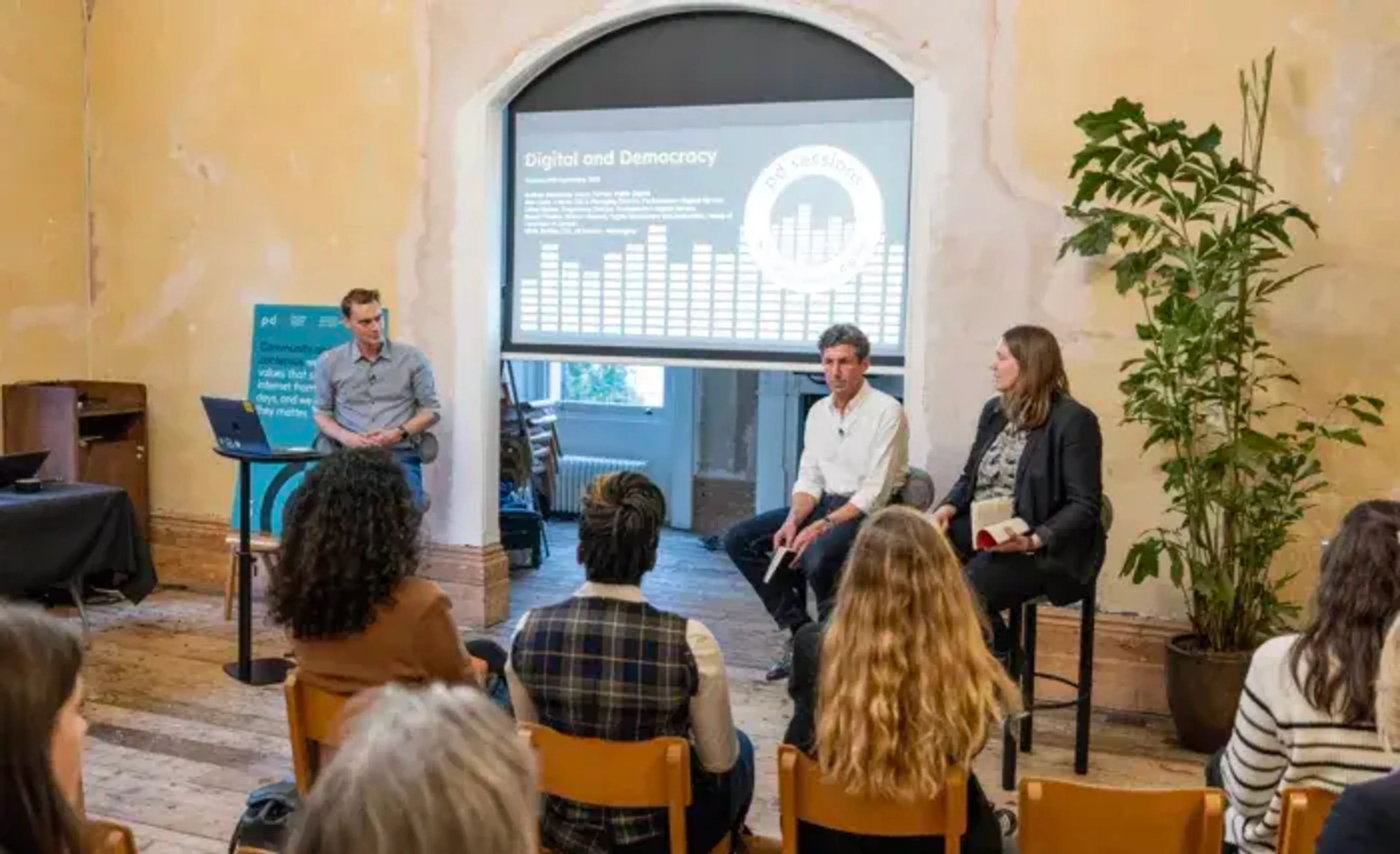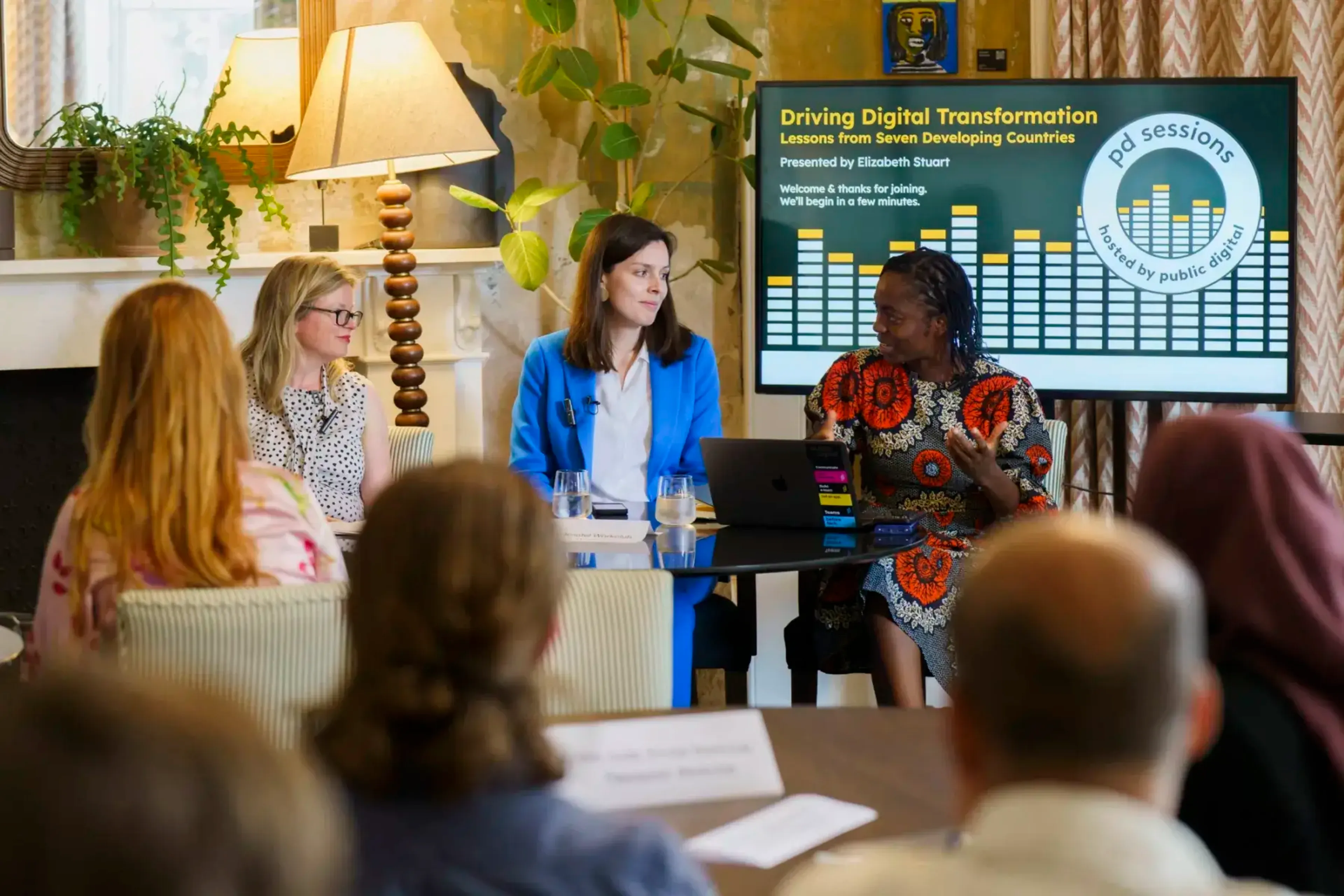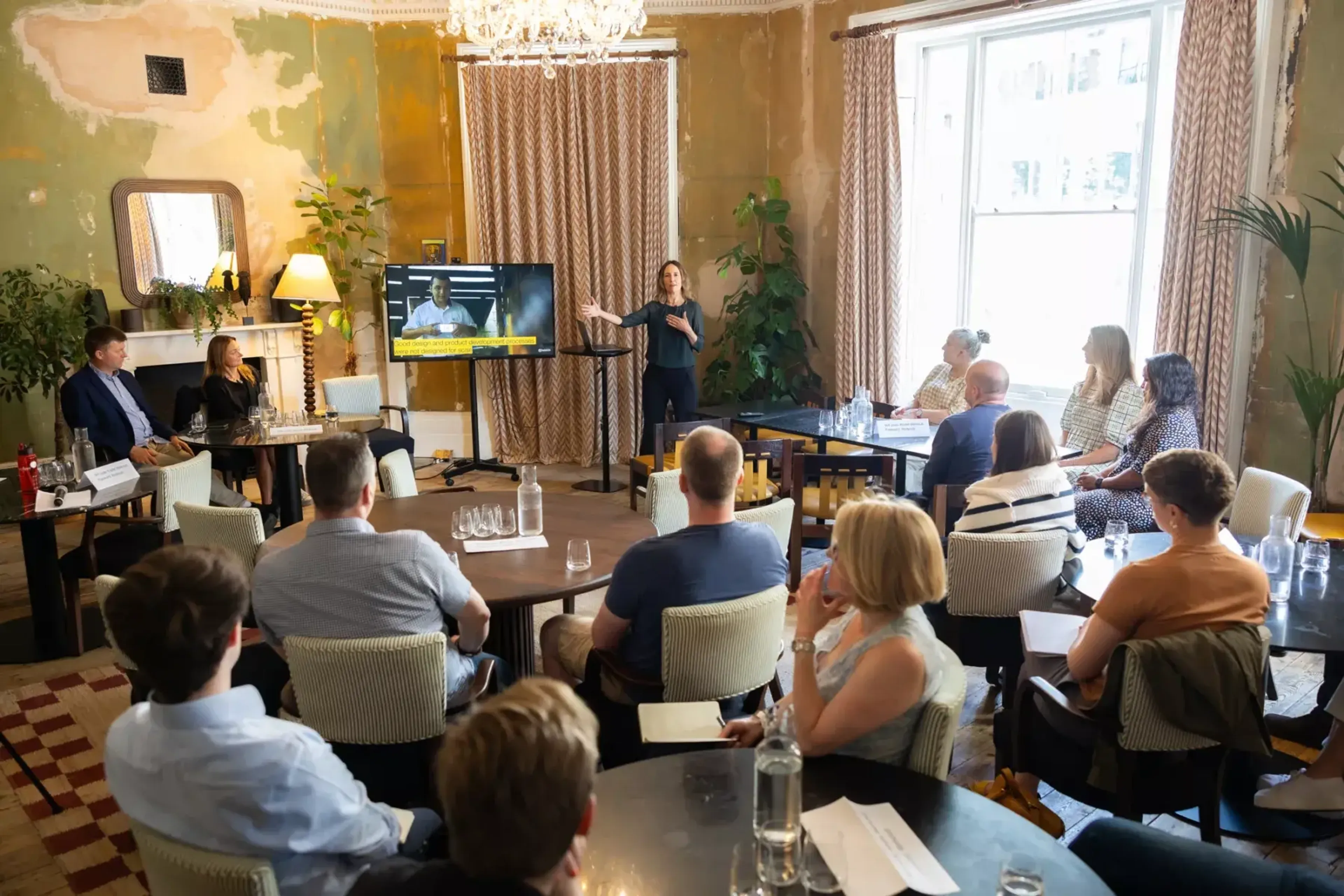
PD Session: Digital transformation in seven developing countries
On 28th June we hosted our second PD Sessions event, presented by Elizabeth Stuart.
This event centred around the themes of Elizabeth's new book: Driving Digital Transformation: Lessons from Seven Developing Countries, co-authored with Benno Ndulu, Stefan Dercon and Peter Knaack.
Elizabeth Stuart is an Executive Director of Digital Pathways at the University of Oxford, where she is also the Executive Director of the Blavatnik School of Government. She brings experience from senior research and policy roles in NGOs across the world, including the Pathways for Prosperity Commission, the Overseas Development Institute (ODI), Save the Children UK and Oxfam International.
Elizabeth was joined on the panel by PD’s Emily Middleton and Blessing Ajimoti, as well as by Anir Chowdhury, a Policy Advisor for a2i Bangladesh. A2i is the leading innovation programme of the ICT Division and the Cabinet Division of the Government of Bangladesh, and is supported by the UN Development Programme.
The book is an account of a digital transformation project undertaken by members of the Pathways for Prosperity Commission team at the Blavatnik School of Government at the University of Oxford between 2019-2021.
The project supported seven developing economy countries, including Bangladesh, as they began their digital transformation journey, helping them identify their comparative advantages in the digital economy through the use of a digital economy toolkit.
The toolkit had three components:
1) Diagnostic process. A thorough examination of the digital skills, infrastructure, finance, and regulation of the country
2) Multi-stakeholder dialogues. The formation of coalitions and conversations between many different people to consider all potential users, and drive the reordering of the economy to capitalise on opportunities in the digital economy
3) Strategy primer. This did not take the form of written policy but instead constituted an action and priorities list based on findings.
The architect of the toolkit was Benno Ndulu, a pre-eminent policy-maker in sub-saharan Africa and the former governor of the Central Bank of Tanzania. The book is partly a tribute to Ndulu and his extraordinary work, and partly an attempt to capture the lessons learned from the programme.

How was the digital economy toolkit different?
Even before the launch of this project, digital diagnostics were a common service provided by development organisations. However, Elizabeth’s team was offering something different.
With the help of the toolkit, they supported developing countries to understand the specifics of what they needed in order to elevate their digital economies. The level of analysis they obtained allowed these countries to prioritise these specifics, and to approach donors like the World Bank with targeted and persuasive plans for how funding would be spent.
And unlike many diagnostics, the team declined to interfere in policy-planning, instead developing strategy primers that helped inform the countries’ digital transformation strategies.
Anir spoke about the role played by the toolkit in Bangladesh’s digital transformation., describing how in its examination of policy issues, the diagnostics process did the invaluable work of helping the team to ruthlessly prioritise. While the digitalisation plans had begun as an attempt to transform the whole of government, multi-stakeholder dialogues convened by the Oxford team helped the Bangladesh team to adopt a whole of society approach and recognise the most important place to start.
Digital inclusion
For Bangladesh, both the toolkit and the conditions of the Covid-19 pandemic brought to the light the digital divide which already existed.
This was one of several factors which prompted the Bangladesh team to write a report on digital exclusion, a process which helped them to identify formerly unaddressed nuances and power dynamics playing a role in digital inequality. The report identified four segments of society marginalised from the digital world: women, people with disabilities, cottage, micro, small and medium enterprises (CMSMEs), and the poor.
It formulates the idea that done well, digital transformation can be fully inclusive.
Elizabeth reflected on the Oxford team’s approach to digital exclusion, and their collective wariness of the ways that digital transformation could further exclude people who are already socially marginalised.
However, this concern was balanced by the knowledge that inequalities would be exacerbated more harshly if countries failed to take advantage of digital technologies at all. As such, there was greater risk posed to social inequality by missing out on the benefits of the digital economy than by implementing digital in a way that might have failed, initially, to be inclusive.
For instance, Elizabeth signalled the evidence of inclusive economic growth from digital in rural India and Pakistan, where jobs from business process outsourcing have increased opportunities and educational outcomes for women.
The priority, then, was to first create, and then to regulate.
Conditions for digital transformation
Reflecting on the lessons learned from the project, Elizabeth identified three preconditions for success in digital transformation:
Timing. In order to have a high-level impact, a careful strategy is needed for successful transformation. In spite of this, timing is everything. Digital reforms must fall at the right time in a political cycle in order to see results. This tends to be early on in government’s administration (shortly after elections) and during the government’s wider policy planning cycle.
Domestic demand. This kind of change cannot be imposed from outsiders, but must meet a genuine demand from society. Anir spoke about the role of the Covid-19 pandemic in creating significant demand for digital transformation during the programme. The pandemic had rapidly made clear that much of society - from education to healthcare to social security - was going to have to operate digitally. As such, digital transformation held the solution for many of the issues facing society at the time.
A government champion. There must be support for the change from a high-level political figure: The Oxford team were working with the offices of Prime Ministers or Presidents across the seven countries. However, there must also be cooperation across multiple government sectors from finance to agriculture: Transformation cannot be confined to the silo of the IT ministry.
The impact of the work
Across the seven countries involved in the programme, some saw more success than others in their use of the toolkit.
While the team at Oxford does not attribute all digital transformation successes in the seven countries to their work, the strategy primers developed in collaboration with the team did become the basis for digital policy and other initiatives developed in many of the seven countries.
For many, including Bangladesh, the impact of the project’s findings has been fundamental, and transformative coalitions formed through the work continue to endure today.
PD Sessions is a participatory events series which aims to broaden our conversation about digital and organisations beyond our clients and in doing so generate a community of practice. Subscribe to hear more about future events.
